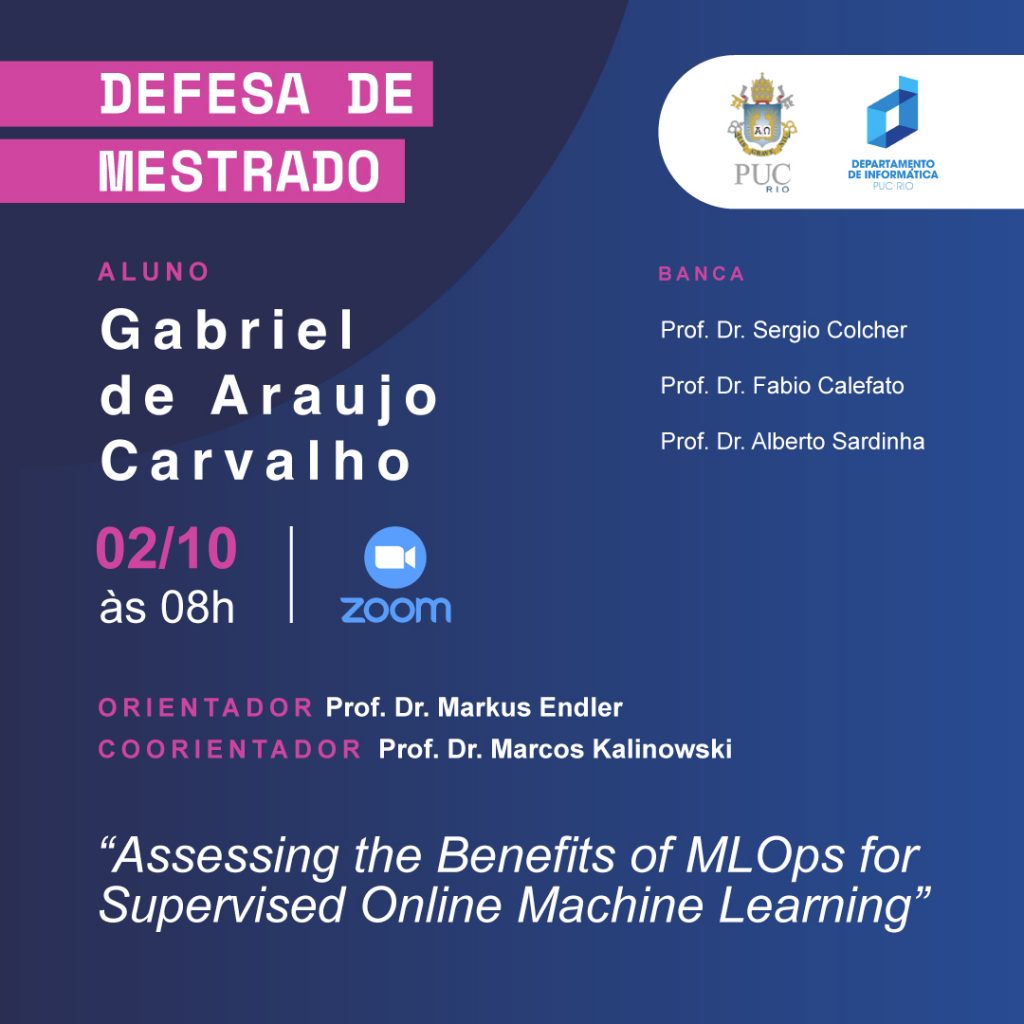 Defesa de Dissertação de Mestrado do aluno Gabriel de Araujo Carvalho.
Defesa de Dissertação de Mestrado do aluno Gabriel de Araujo Carvalho.
Título da Dissertação: Assessing the Benefits of MLOps for
Supervised Online Machine Learning
Resumo: Context: Machine Learning Operations (MLOps) has emerged as a set of practices that combines development, testing, and operations to deploy and maintain machine learning applications. Objective: In this dissertation, we will assess the benefits and limitations of the use of MLOps principles in the context of online supervised models, which are widely used in applications such as weather forecasting, market trends, and risk identification. Method: We applied two research methods to assess the benefits of MLOps for supervised online machine learning applications: (i) developing a practical supervised machine learning project to deepen the understanding of the problem and of the MLOps principles usage possibilities; and (ii) two focus group discussions on the benefits and limitations of using the MLOps principles with six experienced machine learning developers. Results: The practical project implemented a supervised regression machine learning application using KNN. The application uses information on Rio de Janeiro’s public bus line routes and calculates the bus trip duration based on the trip departure time of the day and trip direction. Due to the scope of the first version and given that it was not deployed into production, we didn’t feel the need to use the MLOps principles we were expecting at first. Indeed, we identified the need for only one principle, the versioning principle, to align versions of the code and the data. The focus group revealed that machine learning developers believe that the benefits of using MLOps principles are many but that they do not apply to all the projects they worked on. The discussion brought up that most of the benefits are related to avoiding error-prone manual steps, enabling it to restore the application to a previous state, and having a robust continuous automated deployment pipeline. Conclusions: It is important to balance the trade-offs of investing time and effort in implementing the MLOps principles considering the scope and needs of the project. According to the experts, this investment tends to pay off for larger applications with continuous deployment that require well-prepared automated processes. On the other hand, for initial versions of machine learning applications, the effort taken into implementing the principles might enlarge the scope of the project and increase the time needed to deploy a first version to production.
Orientador: Prof. Dr. Markus Endler
Coorientador: Prof. Dr. Marcos Kalinowski
Banca:
Prof. Dr. Sergio Colcher
Prof. Dr. Fabio Calefato
Prof. Dr. Alberto Sardinha (suplente)
Assista a defesa pelo link: https://puc-rio.zoom.us/j/4666190940?pwd=eUdNaDNSbnhEY3VWWU1DMGF0SkRjZz09


